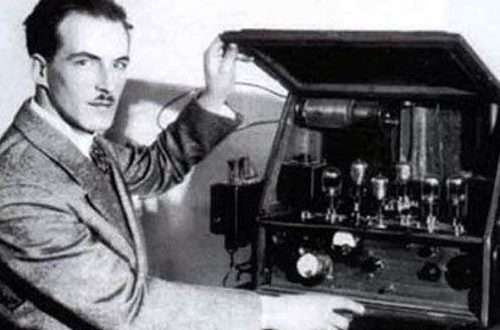How to restore a broken voice
Unfortunately, every vocalist experiences voice loss sooner or later. Very often, the cause of a broken voice is not intensive vocal training, but screaming, especially in a state of strong anger or passion. A broken voice does not disappear like during a cold, but suddenly immediately after a cry or even during it. It immediately becomes hoarse and then disappears altogether. The vocalist can only speak in a whisper while in pain. Here are the measures you need to take immediately after you lose your voice.
To avoid the dangerous consequences of voice trauma, the first thing you need to do is take it as soon as you feel hoarseness and sudden hoarseness.
- In the first minutes, you can only explain with gestures, because, depending on the degree of damage to the ligaments, bleeding may occur. To prevent this from happening, you need to shut up and not talk at all for the first two hours. Especially if it hurts to speak or your voice has become weak and hoarse.
- This will initially soften the unpleasant sensation and allow you to relax the muscles of the larynx. The neck should be kept warm at all times, even in summer. If you lose your voice, you should wrap the throat area with a soft scarf or just natural fabrics.
- If there is no phoniatrist in your city, an ordinary otolaryngologist can also provide assistance. Using a special mirror, he will examine your ligaments and tell you what needs to be done in a particular case, depending on the area of the lesion and the nature of the injury. It happens that the damage to the ligaments may be minor and they recover quickly. But in some cases, your voice can be completely lost permanently, so the sooner the doctor prescribes treatment for you, the faster your voice will recover and the less likely it is that there will be irreversible consequences of the injury. But if this is not possible, at this time you need to stop even mental singing, as it strains the ligaments and can delay the treatment of the consequences of the injury.
- Tea with milk, herbal decoctions with honey at room temperature will help relieve tension and ease the effects of injury. But nothing can replace treatment by a specialist and his professional examination. Therefore, you should not self-medicate: without qualified help, your voice may not be restored.
If you sang in a choir or ensemble, simply move the microphone to the side and smile at the audience. Radio operators or sound specialists understand this gesture and can play the following numbers with the soundtrack. That is why many performers on the big stage sing to a recording of their voice, so that fatigue, hoarseness or a broken voice do not force them to cancel the performance for which money was paid.
Therefore, even if you sing without recording your voice, it is best for you to provide the recordings to the sound specialist in advance, so that in such an extreme situation as your voice breaking during a performance, you can continue the concert and simply move on stage, pretending to sing.
Sometimes concert organizers may cancel acts and allow other artists to take the stage. In opera houses, it is customary to learn double parts, so that if you lose your voice in the next act, an understudy can be released on stage. But such an opportunity exists only in professional opera groups, and ordinary performers cannot count on a full-fledged replacement for the actor. In opera, an understudy can sneak onto the stage unnoticed and continue working after you.
If you lose your voice in a choir or ensemble, you just need to open your mouth and say the words to yourself. This will help you avoid embarrassment and hold out with dignity until the curtain closes. When they release it, you can leave the team and go home. Usually the choir has backup soloists who can replace you in the group, or the organizers will simply remove solo numbers.
First of all, you need to remain silent as much as possible and take the medications that the doctor prescribes for you. Even simple conversations during recovery will have to be replaced with gestures or answers formulated in short words. A good remedy for treating a broken voice is the drug falimint. Its formula allows you to quickly restore the elasticity of the vocal cords and return to work. But only a doctor can give basic recommendations on how to restore a broken voice. Therefore, you need to do what he advises first.
During treatment, vocal classes are canceled, depending on the degree of injury. Most often this period is 2 weeks. During the treatment period, you need to remain silent as much as possible, try not to sing even to yourself, because at this time the injured ligaments begin to vibrate and rub against each other. This may delay the recovery period.
An auxiliary remedy for restoring the elasticity of the vocal cords is milk with honey. It is better to take store-bought milk without foam, heat it to room temperature, add a tablespoon of liquid honey to it, stir and drink slowly in large sips. In some cases, this remedy helps restore your voice in a few days. Here is another way to quickly restore a broken voice if the injury is minor. You need to take anise seeds, brew them like tea, and drink them with milk in large sips. The infusion should not be hot, but very warm so that it is easy to drink. Anise seeds have unique properties, and they were used to restore the voice back in the time of Hippocrates.
But even if you have restored your voice, you need to analyze the cause of what happened and try to avoid repeating the situation. You should not start intense exercise at this time, since the voice is fully restored within a month after the injury.
A few simple steps will allow you to avoid voice injuries in the future. Here are a few rules on how not to lose your voice.
- Most often, vocalists lose their voices not while singing complex works, but in everyday conflicts, especially if they happen after singing. So professional singers should learn to prove that they are right, avoiding raised tones.
- Some teachers, in an effort to make the student’s voice strong, use exercises to force the sound. If you find it difficult and uncomfortable to sing after class, then you should think about changing your teacher or even the musical direction that you have chosen. Studying with a patient teacher, you will know exactly how not to lose your voice during a responsible performance, as he uses a soft attack of sound and teaches you to sing in quiet nuances. Remember that a loud, forced sound formed by cords without respiratory support is harmful to singing and can lead not only to early wear and tear of the voice, but also to dangerous injuries.
- Cold is a provocateur of vocal injuries, in particular if singing in the cold is accompanied by drinking alcoholic beverages or eating ice cream. It is generally not recommended to drink ice-cold drinks before singing.
https://www.youtube.com/watch?v=T0pjUL3R4vg



